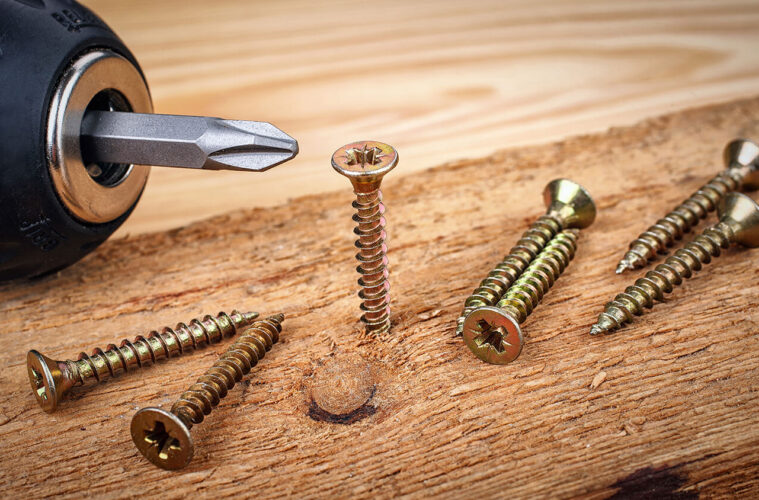When it comes to Do-It-Yourself (DIY) projects, having a thorough understanding of the various types of screws is essential. Choosing the right screw can make or break the strength, durability, and impact the overall success of your project. This guide will go over 11 different types of screws for DIYer should be familiar with, with a special emphasis on LP screws. LP screws are highly versatile and widely used in a variety of applications, making them an essential addition to the toolkit of any DIY enthusiast.
Flat-Head Screws:
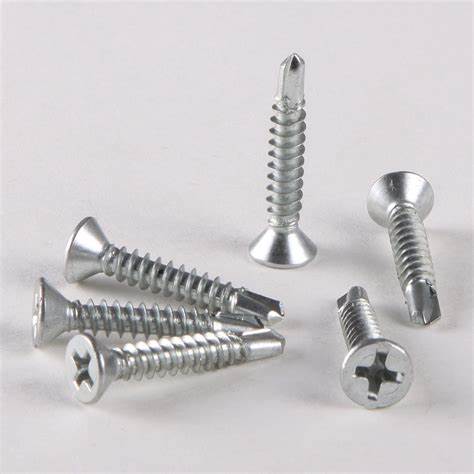
source: pinterest.com
Also known as countersunk screws, flat-head screws have a flat top and a conical shape underneath. They are typically used when the screw head must be flush or slightly below the material’s surface. LP flat-head screws also known as machine screws are ideal for furniture assembly, cabinetry, and woodworking projects because they provide a secure and neat finish.
Round-head screws:
Also known as pan-head screws, have a rounded top surface and a cylindrical shape underneath. They are commonly used when a slightly raised screw head is required. These SS machine screws are versatile and can be used for a variety of tasks, including general woodworking, electrical fixtures and DIY repairs.
Phillips Head Screws:
Phillips head screws are one of the most well-known and widely used screw types. They have a cross-shaped indentation on the top and must be installed with a Phillips screwdriver. LP Phillips head screws are compatible with most standard Phillips screwdrivers, making them ideal for a variety of DIY projects.
Torx Screws:
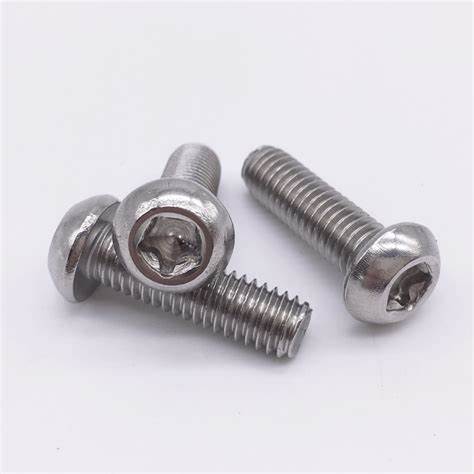
source: pinterest.com
Torx screws, also known as star screws, have a six-pointed star-shaped indentation on the top. This design offers better torque transfer, reducing the risk of cam-out (slippage) during installation. Torx screws provide enhanced grip and are commonly used in applications where high torque and resistance to stripping are essential, such as decking and construction projects.
Square-Head Screws:
Square-head screws, often referred to as Robertson screws, feature a square-shaped indentation on the top. They are well-known for their excellent torque transfer and low cam-out, making them ideal for a variety of DIY projects. Square-head screws are ideal for woodworking, cabinetry, and outdoor projects.
Hex-Head Screws:
Hex-head screws, also called hexagonal screws or bolts, have a six-sided head, requiring a hex key or Allen wrench for installation. Because of the hexagonal shape, which provides a secure grip and allows for high torque application, hex-head screws are ideal for heavy-duty tasks like metalwork, machinery assembly, and automotive repairs.
Self-Tapping Screws:
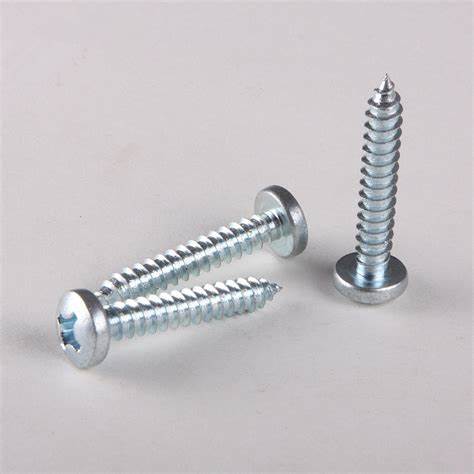
source: pinterest.com
These screws have a sharp, pointed end and threads that cut into the material being screwed into. They eliminate the need for pre-drilling pilot holes and are widely used in metalworking, electrical installations, and general home improvement projects. Self-tapping wood screws save time and effort, resulting in quick and easy installations.
Wood Screws:
A wood screw is designed specifically for use in wooden materials. It has coarse, deep threads with a sharp point that bites into the wood fibres and provides excellent holding power. LP wood Philips comes in a variety of lengths and diameters, making them appropriate for woodworking projects, furniture assembly, and outdoor structures such as decks and fences.
Drywall Screws:
As the name implies, drywall screws are used to install drywall panels. They have fine threads and a bugle-shaped head that sits flush with the drywall surface. LP ss drywall screws provide a quick and secure fastening, preventing cracking or shifting of the panels. They are also widely used in other light-duty applications such as the attachment of thin boards or panelling.
Masonry screws:
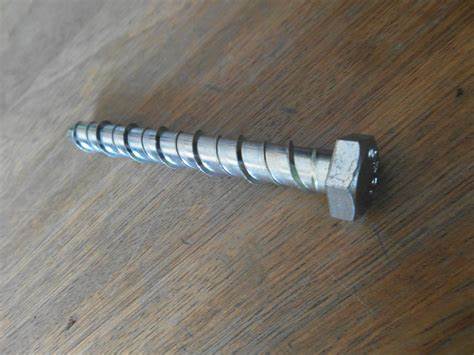
source: pinterest.com
Also known as concrete screws or anchor screws, Masonry screws are used to fasten materials to the surfaces of concrete, brick, or stone. They are made of hardened steel and have threads that are designed to provide strong and secure attachments. Because masonry screws provide strong anchoring, they are ideal for mounting fixtures, shelves, and other items on masonry surfaces.
Deck Screws:
Deck screws are designed specifically for outdoor decking applications. They have corrosion-resistant coatings as well as unique features such as self-drilling tips and increased holding power. Deck screws are ideal for securing deck boards, railing posts, and other outdoor structures, providing long-term durability and weather resistance.
Why is it critical to choose the correct screw?
Screws are purposefully designed, and while some may appear interchangeable, this does not imply that they are the best option. There are several compelling reasons why LP screws are the right types of screws for DIYers.
Protection of Materials:
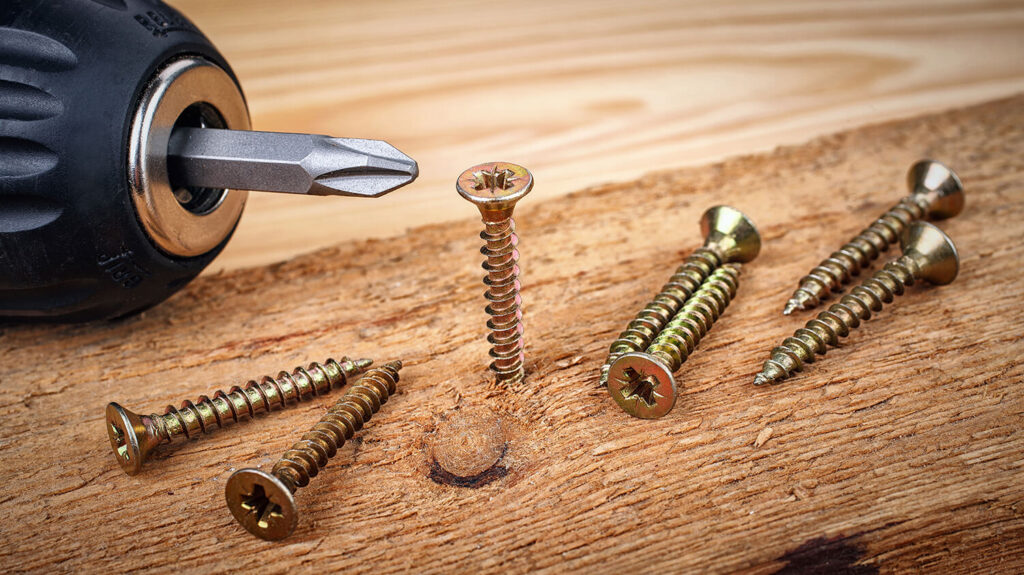
source: pinterest.com
Each screw is carefully crafted to work effectively with specific materials. Opting for the appropriate screw helps safeguard the material from potential damage, such as wood splitting or metal slipping.
Maintenance of Fixtures:
Using the right screw for the task ensures that materials and objects are securely fastened and remain in place. It helps prevent issues like corrosion, splitting, and the collapse of objects, ensuring their longevity and functionality.
Facilitates Easier Project Execution:
Undertaking home projects without professional assistance can be challenging. However, by employing the correct screws for joining materials, the job becomes significantly easier. This choice reduces time, effort, and difficulty, making the task more manageable.
These were a few types of screws for DIYers about which any DIY enthusiast must have a solid understanding to execute any home-project successfully. Flat-head, ss machine screws, Phillips, Torx, square-head, hex-head, self-tapping wood screws, drywall, masonry, and deck screws, among others, provide versatility, dependability, and ease of use for a variety of projects. You can ensure the strength, durability, and success of your DIY projects by selecting the appropriate screw for each task.
So, stock up on these necessary screws and get ready to tackle your next project with confidence. Happy DIY-ing!

